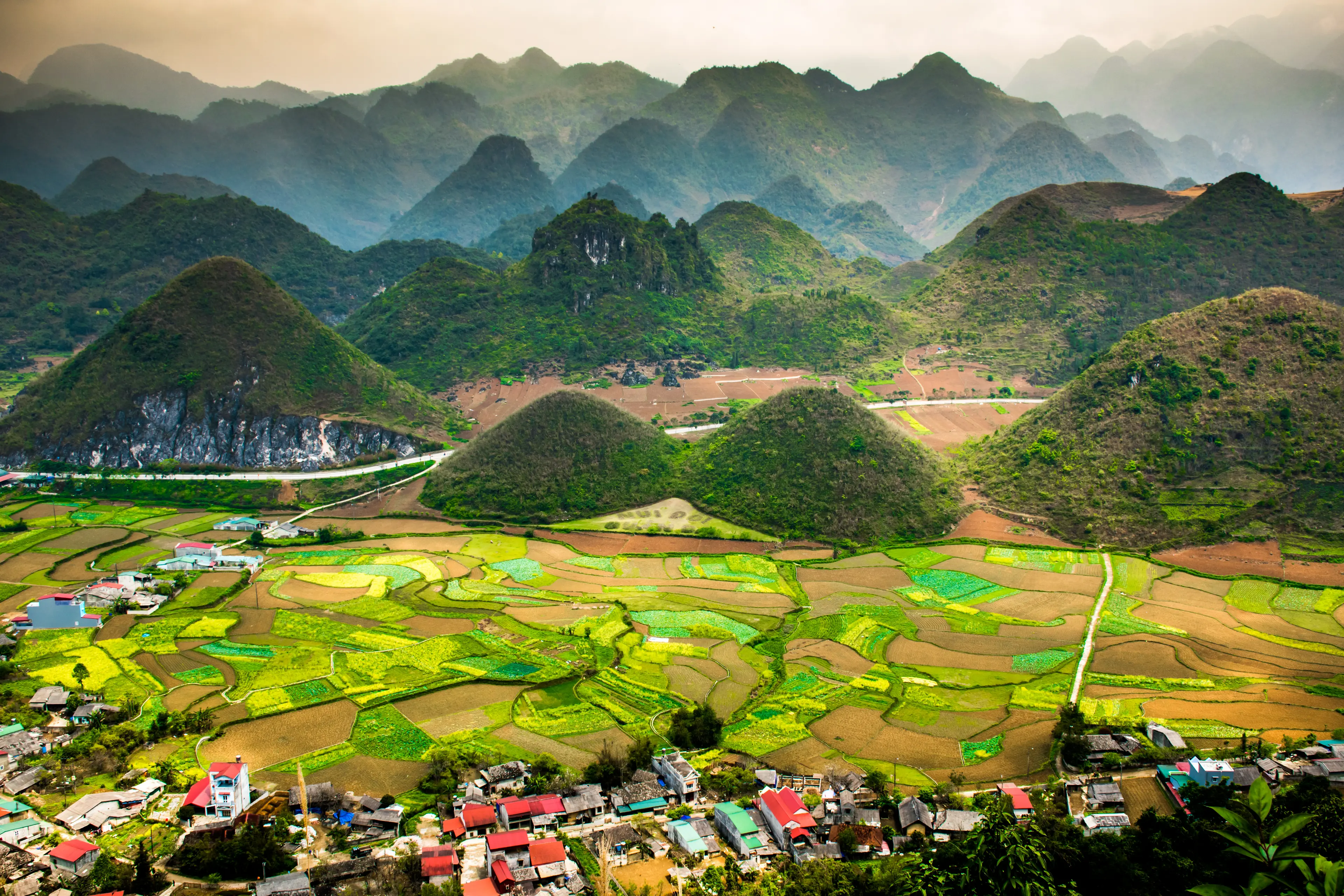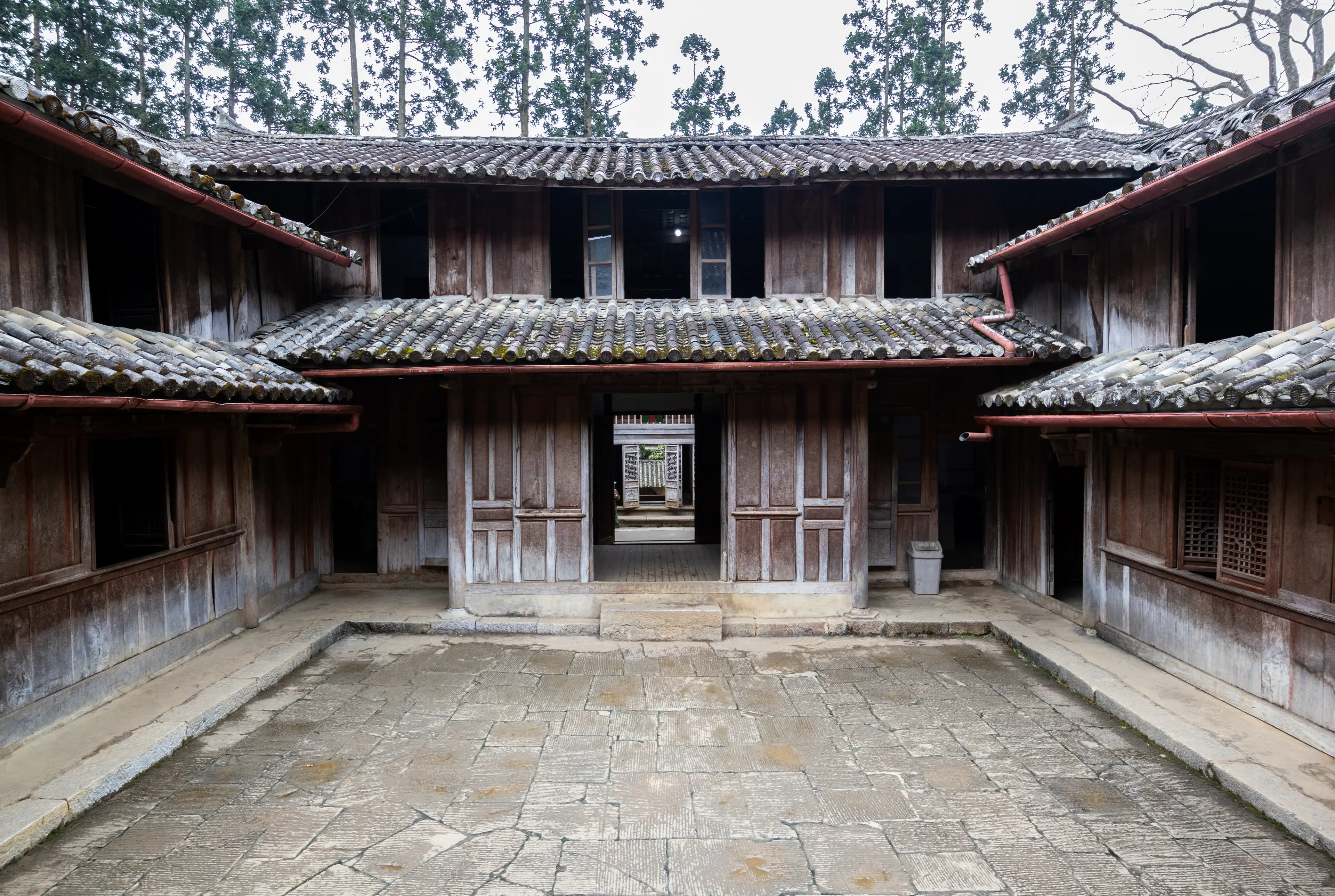3-Day Family Adventure: Food, Sights and Hidden Trails of Ha Giang
Ha Giang, Vietnam
3 days
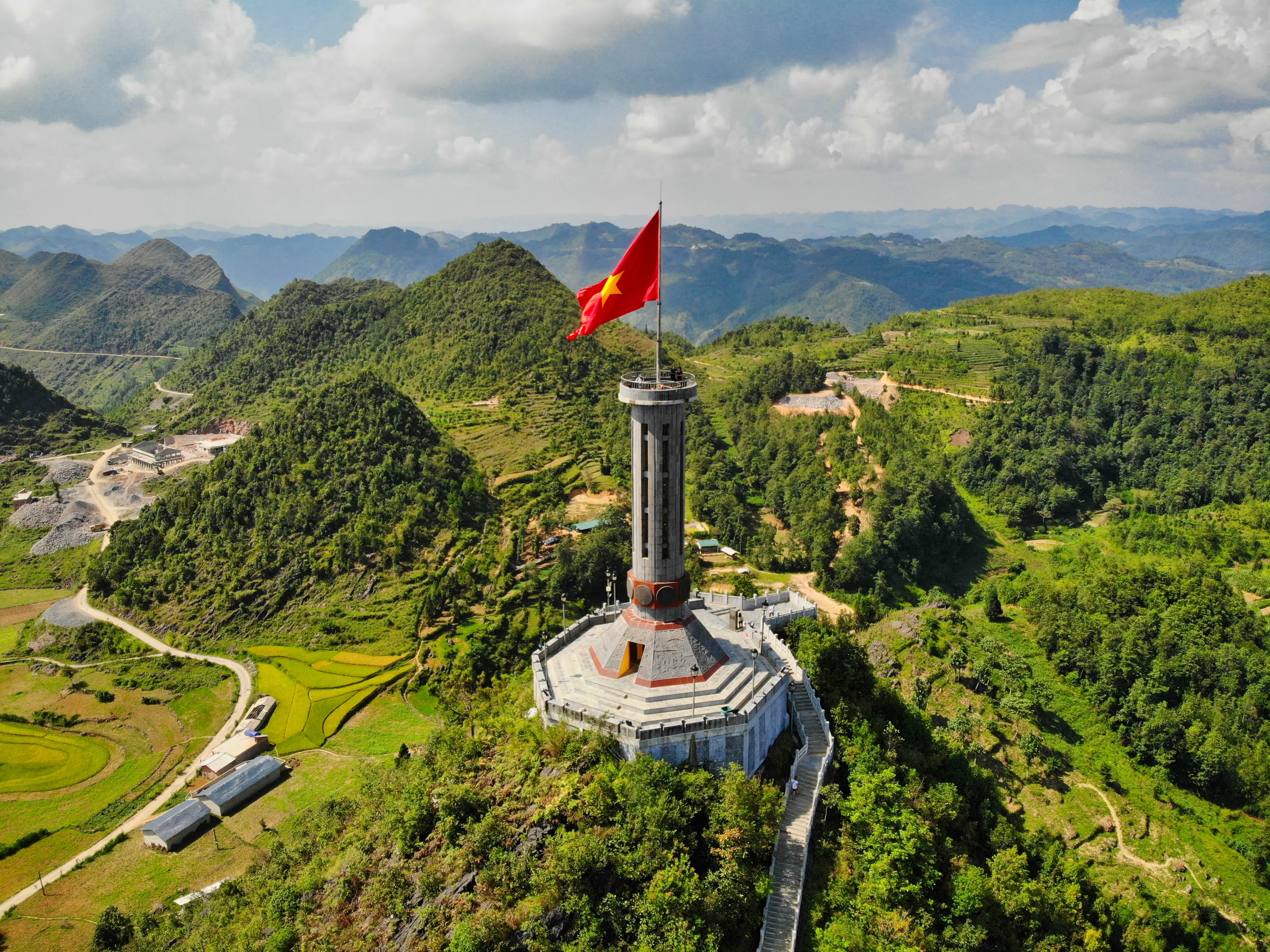
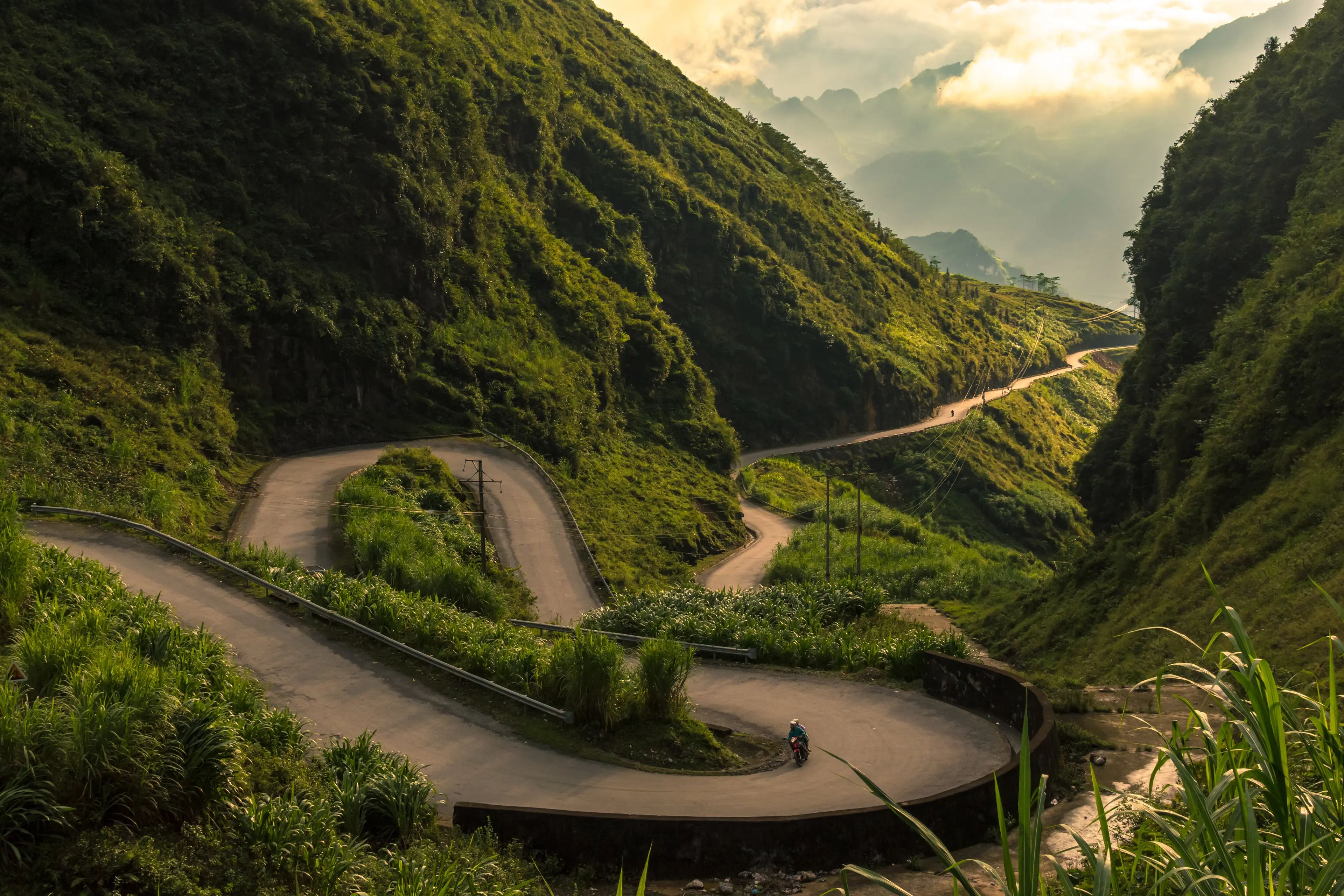
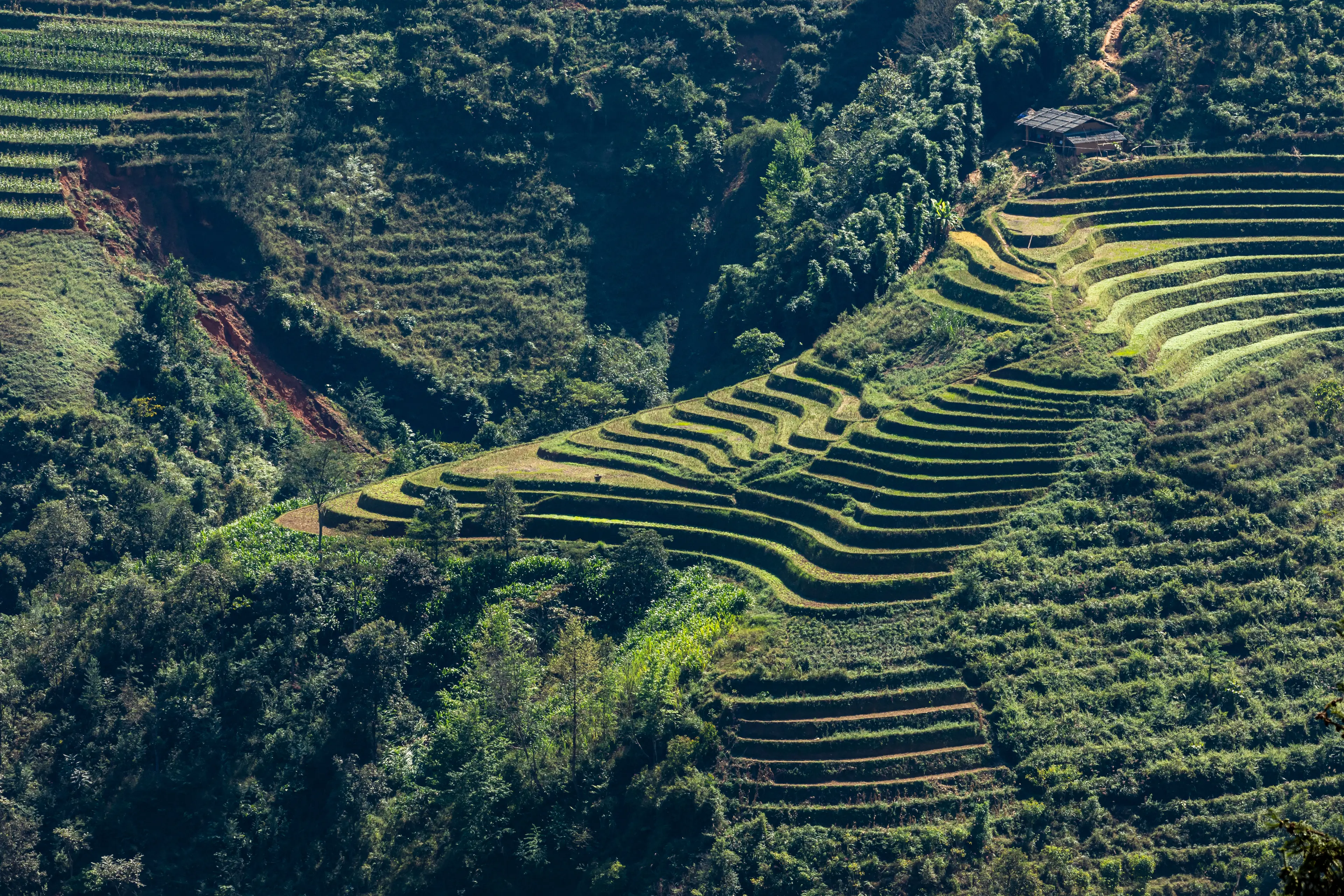
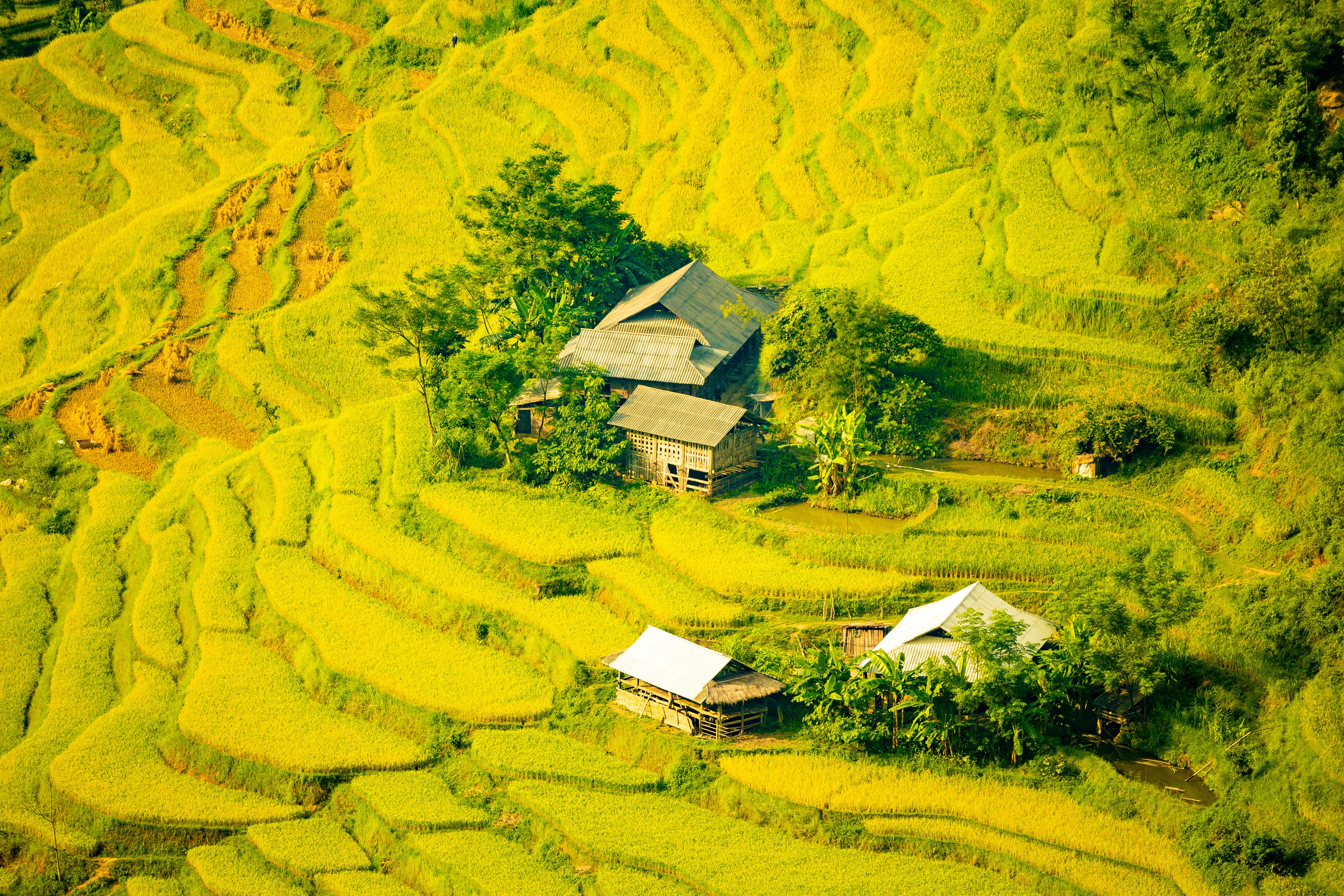
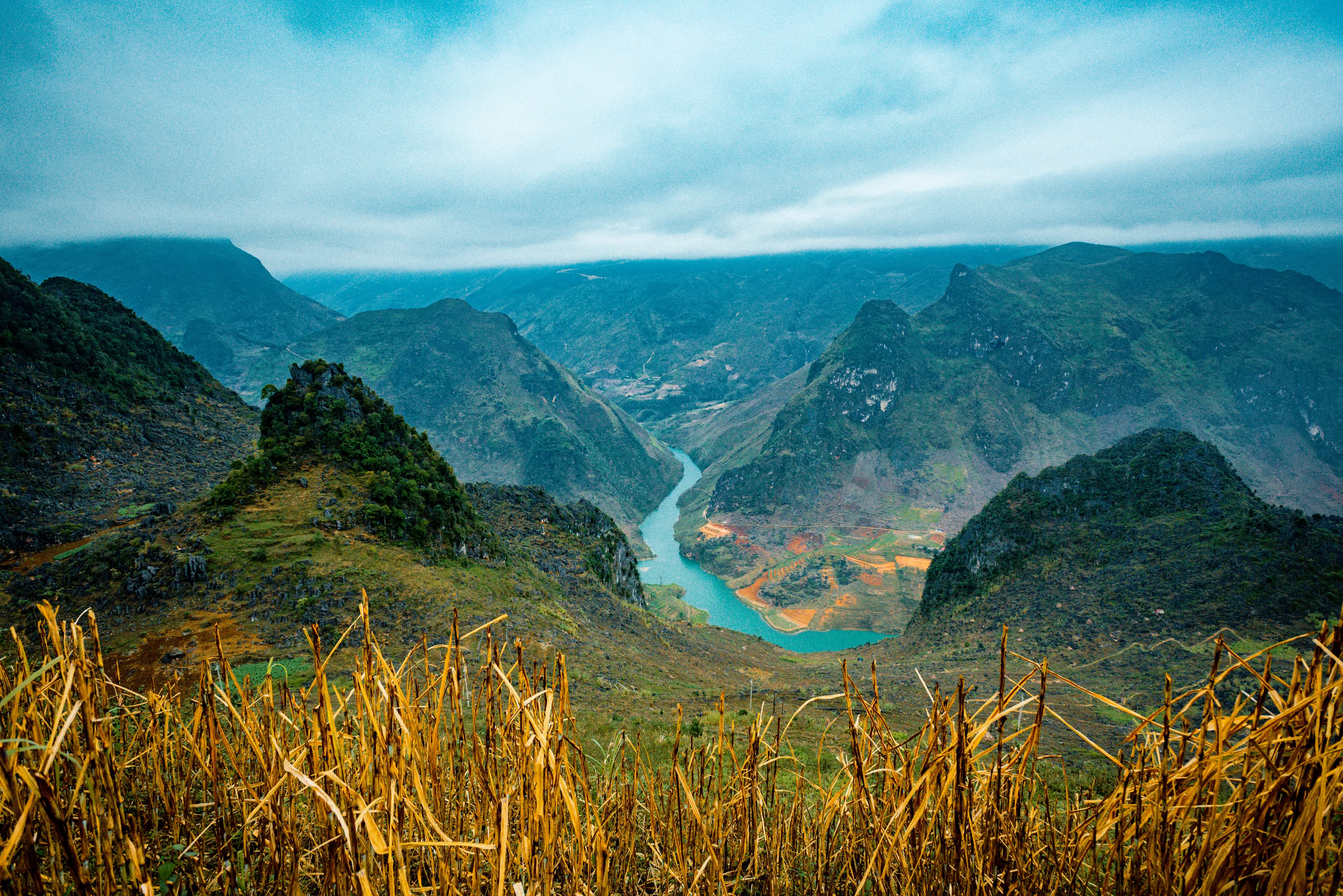
About Ha Giang, Vietnam
Discover the untouched beauty of Ha Giang, Vietnam, a hidden gem nestled in the country's northernmost highlands. Renowned for its rugged landscapes, Ha Giang offers an unparalleled journey through terraced rice fields, towering peaks, and winding rivers. Experience the rich cultural tapestry of the region, home to 22 ethnic minorities, each with unique traditions and colorful attire. Visit the Dong Van Karst Plateau Geopark, a UNESCO World Heritage Site, or trek the Ma Pi Leng Pass for breathtaking views. Explore the Quan Ba Twin Mountains and the ancient Vuong Palace. With its captivating scenery, vibrant culture, and warm hospitality, Ha Giang promises an unforgettable adventure for intrepid travelers.
3-Day Itinerary
Day 2
Visit to H'Mong King's Palace and Dong Van Market
Morning
Visit the H'Mong King's Palace, a unique architectural masterpiece that offers a glimpse into the life of the H'Mong ethnic group.
Lunch
Enjoy a picnic lunch amidst the stunning natural beauty of the Ma Pi Leng Pass. The pass offers panoramic views of the Nho Que River and the surrounding mountains.
Afternoon
Explore the bustling Dong Van Market, where you can buy local handicrafts, fresh produce, and traditional clothing.
Dinner
Enjoy a delicious dinner in a local restaurant. Try the local rice wine, known as 'Ruou Can', for an authentic Vietnamese experience.
Evening
Spend the evening strolling around the town, soaking in the local culture and ambiance.
Day 3
Exploration of Lung Cu Flag Tower and Quan Ba Twin Mountains
Morning
Visit the Lung Cu Flag Tower, the northernmost point of Vietnam. The tower offers panoramic views of the surrounding landscapes.
Lunch
Enjoy a traditional Vietnamese lunch in a local eatery. Try the local delicacies such as Pho, Banh Mi, and fresh spring rolls.
Afternoon
Explore the Quan Ba Twin Mountains, also known as the 'Fairy Mountains'. The unique shape of the mountains and the surrounding landscapes make for a picturesque sight.
Dinner
Savor a hearty dinner in a local restaurant. Try the local specialty, Thang Co, a traditional soup made with horse meat and a variety of herbs.
Evening
Relax and unwind in your hotel after a day of adventure. Enjoy the serene ambiance of the mountainous region.
Attractions in Itinerary (6)

1Dong Van Karst Plateau Geopark
A UNESCO Global Geopark, featuring stunning karst landscapes and rich biodiversity.

2H'Mong King's Palace
A historic site showcasing the unique architecture and culture of the H'Mong ethnic group.

3Ma Pi Leng Pass
One of the 'four great passes' in Vietnam, offering breathtaking views of the surrounding mountains and valleys.

4Dong Van Market
A bustling market where local ethnic groups come to trade goods and produce. It's a great place to experience local culture, try traditional foods, and buy unique souvenirs.

5Lung Cu Flag Tower
A monument marking the northernmost point of Vietnam, offering panoramic views of the surrounding landscapes.

6Quan Ba Twin Mountains
A unique natural formation of two limestone mountains resembling a pair of breasts, offering stunning panoramic views.
Local Food and Drinks (12)

Thang Co
A traditional dish of the H'Mong people in Ha Giang, made from horse meat, organs and bones, cooked for several hours and seasoned with local spices.
Men Men
A staple food in Ha Giang, made from ground maize, steamed and often served with vegetables or meat.

Com Lam
A type of rice dish cooked in a bamboo tube, giving it a unique flavor. It's a common food in the mountainous regions of Ha Giang.
Ruou Ngo
A local corn wine that is popular in Ha Giang. It's often enjoyed during meals or social gatherings.
Au Tau Porridge
A special porridge made from Au Tau root and rice. It's known for its medicinal properties and is a popular breakfast food in Ha Giang.
Buckwheat Cake
A traditional cake made from buckwheat flour, often served with honey. Buckwheat is a common crop in Ha Giang.

Five-Color Sticky Rice
A festive dish made from sticky rice dyed with natural colors. It's often served during special occasions in Ha Giang.
Smoked Meat
A traditional dish in Ha Giang where meat is smoked over a wood fire, giving it a unique flavor.
Grilled Moss
A unique dish in Ha Giang where moss from the local rivers is grilled and served with a spicy sauce.

Ruou Can
A traditional rice wine served in a communal pot and drunk through long bamboo straws. It's a popular drink in social gatherings in Ha Giang.
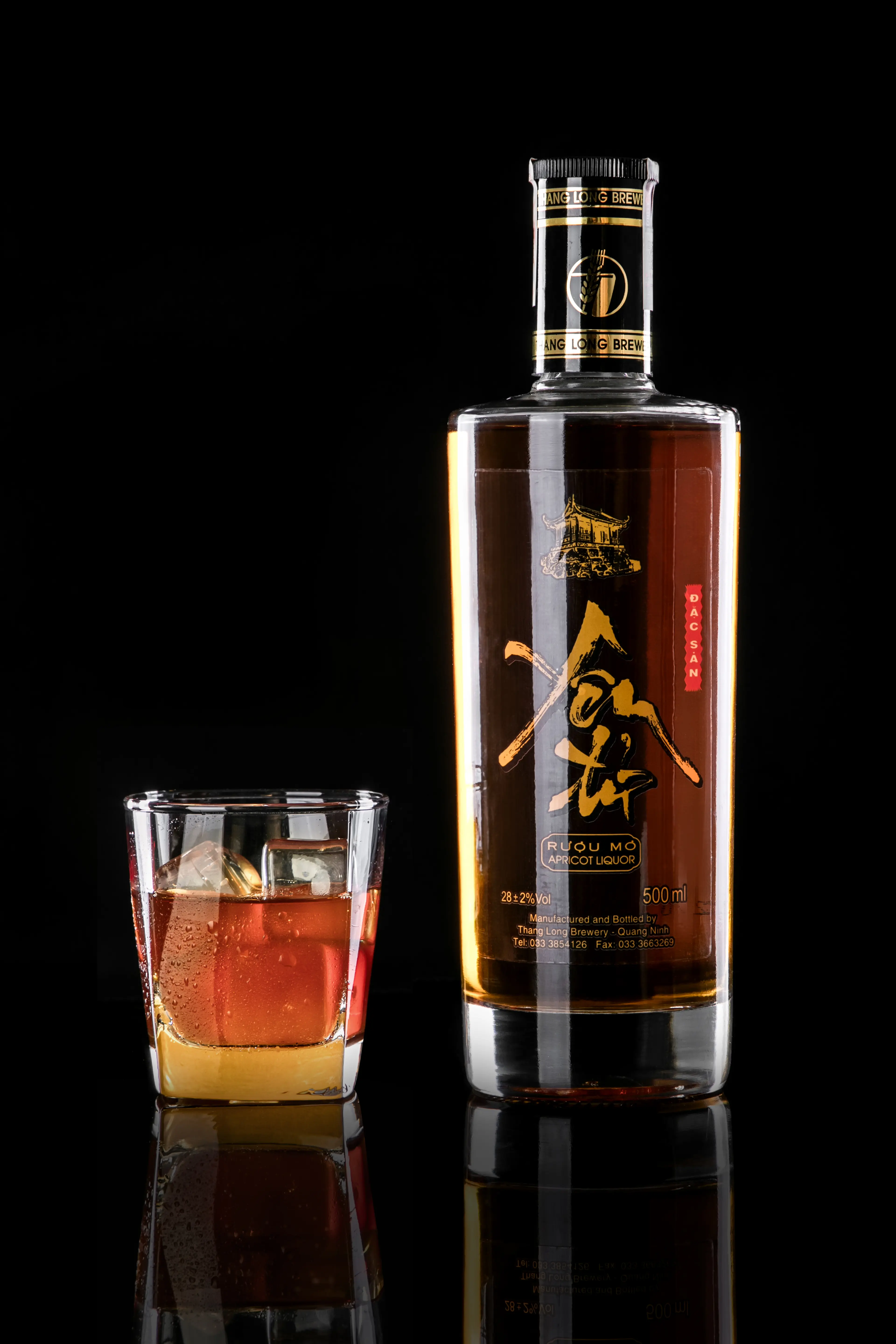
Plum Wine
A local wine, locally known as Ruou Mo, made from the plums that are abundant in Ha Giang. It's a sweet and tangy drink that is enjoyed by locals and tourists alike.
Black-Bone Chicken Soup
A nutritious soup made from black-bone chicken, a local breed in Ha Giang. It's often served with medicinal herbs.
Best time to visit
The best time to visit Ha Giang, Vietnam is during the dry season, which is from October to April. During these months, the weather is generally sunny and cool, making it ideal for outdoor activities such as trekking and exploring the stunning landscapes. The most popular times within this period are October and November, when the buckwheat flowers are in full bloom, covering the mountain slopes in a blanket of pink and purple. Another great time is in March and April when the peach and plum flowers blossom, creating a beautiful and colorful scenery.
How to get around
Motorbike
Motorbiking is the most popular way to explore Ha Giang. You can rent a motorbike and navigate through the province's winding roads and stunning landscapes. It's important to note that the roads can be challenging, so this option is best for experienced riders.
Car
Renting a car is another option, especially for those who prefer a more comfortable and safer mode of transport. You can hire a car with a driver who is familiar with the local roads and attractions.
Bus
There are local buses that run from Hanoi to Ha Giang city. From there, you can take another bus or hire a motorbike to explore the rest of the province. Buses are a cost-effective way to travel, but they can be crowded and the journey can be long.
Taxi
Taxis are available in Ha Giang city and can be used for short trips within the city. However, they are not the most practical option for exploring the wider province due to the cost and availability.
Bicycle
For the more adventurous, cycling is a great way to explore Ha Giang. The province's hilly terrain and stunning landscapes make for a challenging but rewarding cycling experience. You can rent bicycles in Ha Giang city.
Ridesharing
Ridesharing services like Grab are not widely available in Ha Giang. However, you may find some local ridesharing options in the city. It's always best to check the availability and prices before planning your journey.
Foot
Walking is a great way to explore Ha Giang city and the nearby villages. It allows you to take in the sights at your own pace and interact with the local people. However, due to the large distances between attractions in the wider province, walking is not a practical option for exploring the entire region.
Important information
Currency₫ VND
Time zoneUTC+7
Driving sideRight
Emergency phoneAmbulance: 05; Fire: 08; Police: 03
Drinking waterOpt for bottled water
Power sockets
Voltage220 V
Things to know about Ha Giang, Vietnam as a first time visitor
1
Ha Giang is located in the far north of Vietnam, bordering China.
2
The official currency is the Vietnamese Dong (VND). Credit cards are not widely accepted, especially in rural areas, so it's advisable to carry cash.
3
The local language is Vietnamese. English is not widely spoken, especially in rural areas. It would be beneficial to learn a few basic Vietnamese phrases.
4
Ha Giang has a tropical monsoon climate. The dry season is from October to April, and the rainy season is from May to September. The average temperature ranges from 60.8°F to 86°F (16°C to 30°C).
5
Ha Giang is famous for its terraced rice fields, so be prepared for a lot of hiking and outdoor activities.
6
Vietnam requires a visa for most foreign visitors. Make sure to check the visa requirements for your country before your trip.
7
The local food is a must-try. Ha Giang is known for its unique dishes like Thang Co (horse meat stew) and Men Men (steamed cornmeal).
8
The region is mountainous and the roads can be challenging, especially in rainy weather. If you plan to rent a motorbike, make sure you are an experienced rider.
9
Healthcare facilities in Ha Giang are basic. It's advisable to have travel insurance that covers medical evacuation.
10
Tap water is not safe to drink. Always drink bottled water.
11
Ha Giang is a safe destination, but like anywhere, it's important to be aware of your surroundings and keep your belongings secure.
12
The region is home to many ethnic minority groups, each with their own unique customs and traditions. Respect for local culture is important.
13
Public transportation is limited. The most common way to get around is by motorbike or private car.
14
Internet access can be limited, especially in rural areas. Consider buying a local SIM card for data.
15
Electricity in Vietnam is 220 Volts. If your device does not accept this voltage, you will need a voltage converter.
16
The best time to visit Ha Giang is from September to November, when the rice fields are in harvest season and the landscape is the most colorful.
17
Remember to dress modestly, especially when visiting local homes or religious sites.
18
Bargaining is common in markets, but not in supermarkets or restaurants.
19
It's advisable to carry some basic medications for common ailments like diarrhea, fever, and cold.
20
Vietnam is 7 hours ahead of Greenwich Mean Time (GMT+7). There is no daylight saving time.
Basic Vietnamese to know as a first time visitor
English phrase | Native phrase | Pronunciation | When to use it |
|---|---|---|---|
Hello | Xin chào | Sin chow | Greeting someone |
Goodbye | Tạm biệt | Tam byet | Leaving or saying goodbye |
Thank you | Cảm ơn | Kam uhn | Showing appreciation |
Yes | Có | Koh | Agreeing or confirming |
No | Không | Khom | Disagreeing or denying |
Please | Làm ơn | Lam uhn | Making a polite request |
Excuse me | Xin lỗi | Sin loy | Getting attention or apologizing |
I don't understand | Tôi không hiểu | Toy khom hee-oo | When you don't understand something |
Do you speak English? | Bạn có nói tiếng Anh không? | Ban koh noy teeng Anh khom? | Trying to find someone who speaks English |
I need help | Tôi cần giúp đỡ | Toy can zoop doh | When you need assistance |
Where is the bathroom? | Nhà vệ sinh ở đâu? | Nha vay sin o dau? | Looking for a bathroom |
How much does this cost? | Cái này giá bao nhiêu? | Cai nay gia bao nhieu? | Asking for the price of something |
I'm lost | Tôi bị lạc | Toy bee lack | When you're lost |
Can I have the menu, please? | Tôi có thể xem thực đơn không? | Toy co te xem thuc don khom? | At a restaurant, asking for the menu |
Water | Nước | Nook | Asking for water |
Beer | Bia | Bee-ah | Ordering a beer |
Delicious | Ngon | Ngawn | Complimenting the food |
Taxi | Taxi | Taxi | When you need a taxi |
Hotel | Khách sạn | Khaak san | Looking for a hotel |
Help! | Cứu! | Koo! | In an emergency |
Packing List
Clothing
Lightweight clothing
Underwear
Socks
Sleepwear
Swimwear
Comfortable walking shoes
Flip flops
Hat or cap
Sunglasses
Rain jacket or umbrella
Toiletries
Travel-sized shampoo and conditioner
Travel-sized body wash
Toothbrush and toothpaste
Deodorant
Razor and shaving cream
Makeup and makeup remover
Sunscreen
Insect repellent
First aid kit
Prescription medications
Hand sanitizer
Travel documents and essentials
Passport
Driver's license or ID card
Credit and debit cards
Cash in local currency
Travel insurance documents
Hotel and transportation reservation confirmations
Emergency contacts and addresses
Electronics and gadgets
Smartphone and charger
Headphones
Camera and charger
Memory cards
Power bank
Travel adapter
Miscellaneous items
Travel pillow
Earplugs and eye mask
Snacks
Water bottle
Books or e-reader
Travel guide and map
Notebook and pen
Reusable shopping bag
Weather Conditions
Ha Giang, Vietnam is a beautiful destination known for its stunning landscapes and unique cultural experiences. However, the weather can be quite variable, so it's important to plan your trip accordingly. The region experiences a tropical monsoon climate, which means there are two main seasons: the rainy season from May to September, and the dry season from October to April. The average temperature ranges from 60-75°F (15-24°C) throughout the year. If you're planning to visit during the rainy season, be prepared for heavy rainfall, especially in the afternoons and evenings. It's advisable to carry waterproof clothing and shoes. The rain can make the roads slippery, so extra caution is needed if you're planning to drive or ride a motorbike. The dry season, on the other hand, is the best time to visit Ha Giang for outdoor activities like trekking and exploring the beautiful landscapes. The weather is generally cooler and drier, making it more comfortable for sightseeing. However, it can get quite cold in the evenings and early mornings, especially from December to February, with temperatures dropping to around 50°F (10°C). So, don't forget to pack some warm clothing. Regardless of when you visit, always remember to stay hydrated and protect yourself from the sun. The UV index in Ha Giang can be high, so carry sunscreen, sunglasses, and a hat. Lastly, keep an eye on the weather forecast during your trip. Weather conditions can change quickly in Ha Giang, and being prepared will ensure you have a safe and enjoyable trip.
| Month | Hi / Lo (°C) | Weather Overview |
|---|---|---|
January | 22° / 8° | January is the coldest month in Ha Giang, with temperatures ranging from 8°C to 22°C. It's a good time to visit if you enjoy cooler weather. |
February | 24° / 10° | February sees a slight increase in temperature, ranging from 10°C to 24°C. The weather is still cool and comfortable for sightseeing. |
March | 28° / 14° | March marks the beginning of spring in Ha Giang, with temperatures ranging from 14°C to 28°C. It's a great time to visit for outdoor activities. |
April | 32° / 18° | April is warmer with temperatures ranging from 18°C to 32°C. The weather is ideal for exploring the natural beauty of Ha Giang. |
May | 35° / 21° | May is the start of the hot season in Ha Giang, with temperatures ranging from 21°C to 35°C. It's a good time to visit if you enjoy hot weather. |
June | 37° / 23° | June is one of the hottest months in Ha Giang, with temperatures ranging from 23°C to 37°C. Make sure to stay hydrated and wear sun protection. |
July | 38° / 24° | July is the peak of the hot season in Ha Giang, with temperatures ranging from 24°C to 38°C. It's a good time to visit if you enjoy hot weather. |
August | 38° / 24° | August is also a hot month in Ha Giang, with temperatures ranging from 24°C to 38°C. It's a good time to visit if you enjoy hot weather. |
September | 35° / 21° | September marks the beginning of autumn in Ha Giang, with temperatures ranging from 21°C to 35°C. The weather is ideal for outdoor activities. |
October | 32° / 18° | October sees a decrease in temperature, ranging from 18°C to 32°C. The weather is cool and comfortable for sightseeing. |
November | 28° / 14° | November is a cool month in Ha Giang, with temperatures ranging from 14°C to 28°C. It's a good time to visit if you enjoy cooler weather. |
December | 24° / 10° | December is a cool month in Ha Giang, with temperatures ranging from 10°C to 24°C. It's a good time to visit if you enjoy cooler weather. |
Did you know?
Places near by Ha Giang, Vietnam

Bac Son Valley
Known for its stunning landscapes and rice fields, Bac Son Valley is a must-visit for nature lovers.

Cao Bang City
A city surrounded by mountains and rivers, offering beautiful landscapes and historical sites like the Pac Bo Cave.

Ban Gioc Waterfall
One of the most beautiful waterfalls in Vietnam, located on the border between Vietnam and China.

Ba Be National Park
A biodiverse park with a large freshwater lake, caves, waterfalls, and diverse flora and fauna.

Lang Son City
A city known for its markets, ancient citadels, and beautiful landscapes.

Hanoi
The capital city of Vietnam, known for its centuries-old architecture and rich culture with Southeast Asian, Chinese and French influences.
